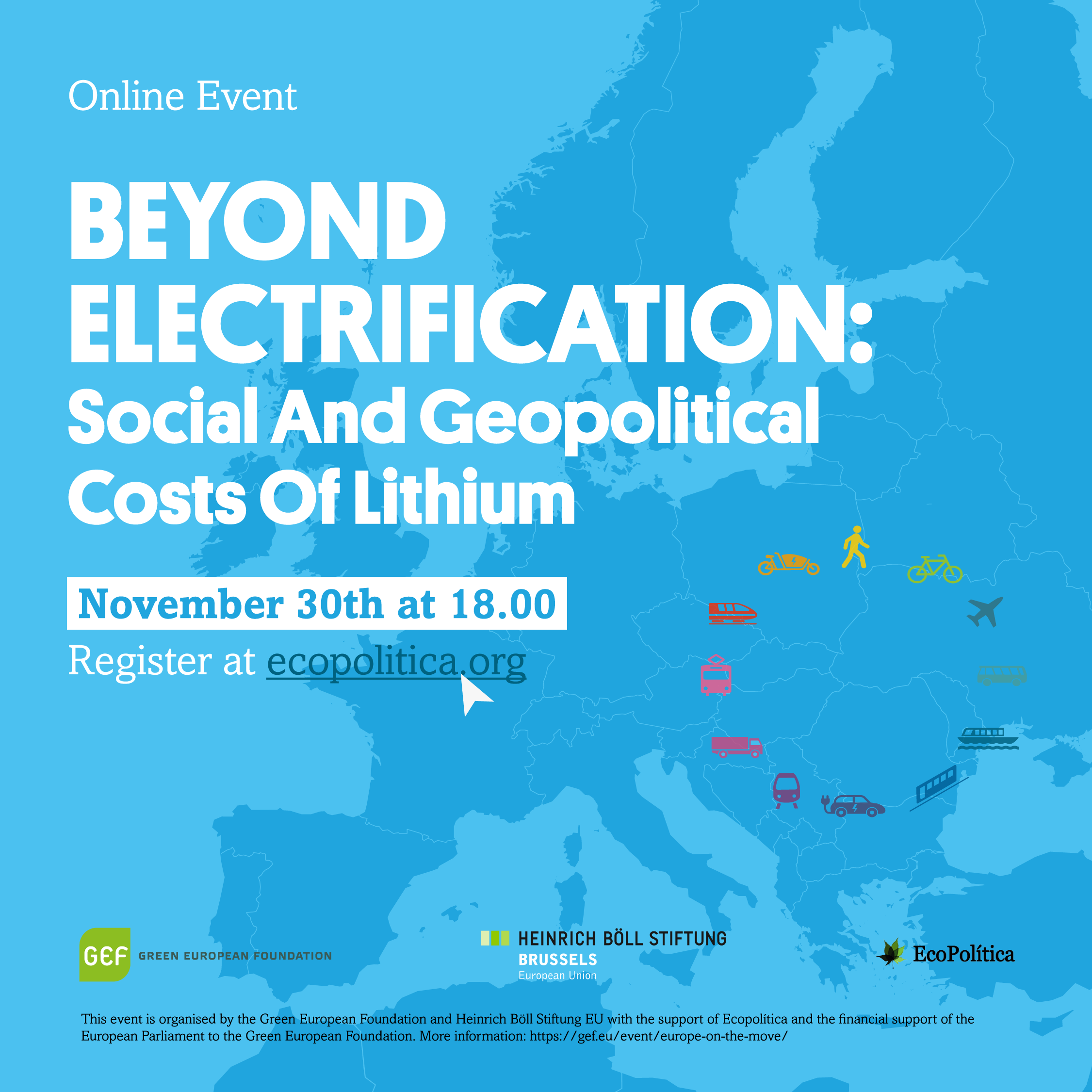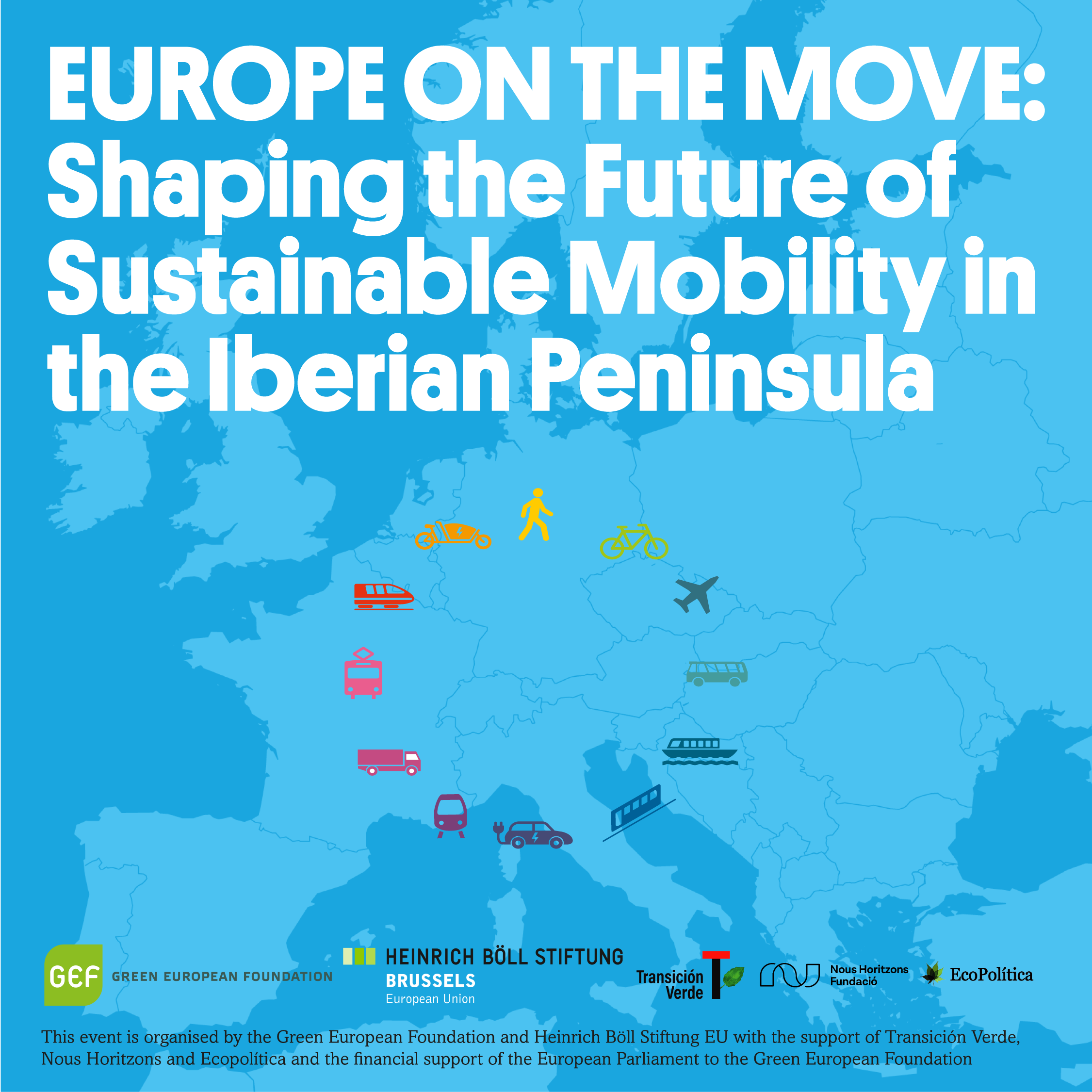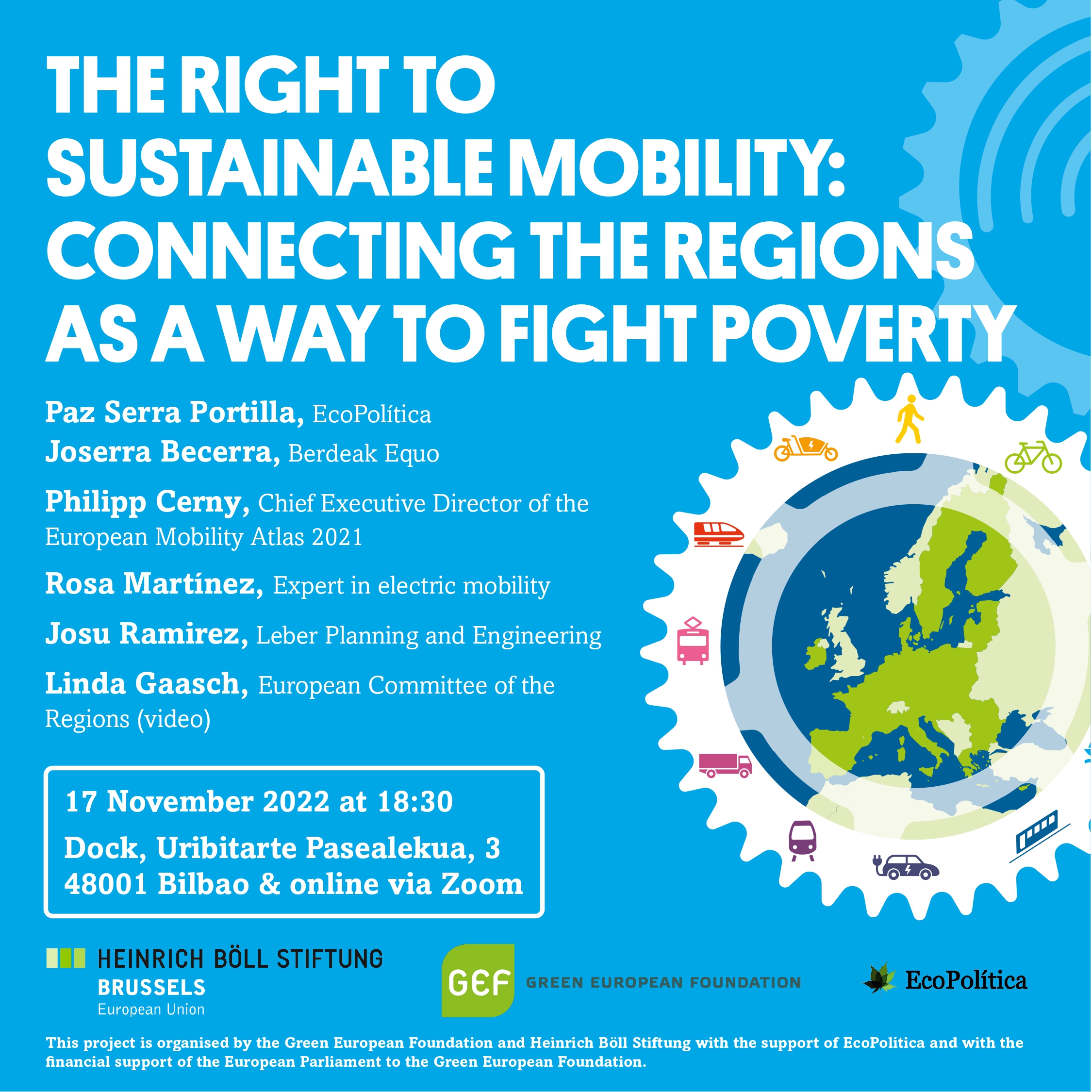
About the event
The growing demand for electrification does not come without its own costs. Environmental, social and ethical considerations arise when taking into account the impact on local communities. To obtain the necessary resources, huge extractivist industries threaten to devastate entire regions. How can we resist them? Furthermore, electrification also poses some serious global issues. Can we move beyond our outdated electricity and mobility model without compromising social justice and the exploitation of the Global South?
This session will bring together voices and expertise from politics and civil society to expose the flaws and limitations of the current model of electrification at local, national and European levels. The aim of the event is to create a dynamic space for debate where we can explore ways to ensure a more sustainable and socially just electrified future.
Project background
This event is part of a series of debates entitled “Europe on the Move: Shaping the Future of Sustainable Mobility in the Iberian Peninsula” organised by the Green European Foundation and Heinrich Böll Stiftung EU with the support of Transición Verde, Instituto José Tengarrinha, Fundació Nous Horitzons, EcoPolítica and the financial support of the European Parliament to the Green European Foundation.
This series of debates aims to foster debate in Portugal and Spain around the future of mobility, bringing together relevant stakeholders from civil society, academia and politics to analyse and explore challenges and opportunities for the future of mobility and the Green Deal in Europe.
Speakers
- Catalina Abell (moderator), EcoPolitica, expert in political communication and political processes.
- Florent Marcellesi, former-MEP. Federal Co-Spokesperson of Verdes Equo.
- Adriana Espinosa, Amigas de la Tierra (Friends of the Earth Spain). Responsible for the Area of Natural resources and Waste. Author of the next AdT inform on “Materials for the energetic and digital transition”.
- Catarina Scarrott, Associação Unidos em Defesa de Covas do Barroso (UDCB) movement. Covas de Barroso is being targeted as a ‘sacrifice zone’ for lithium mining, and the local population, represented by the UDCB, is opposed.
- Diego Marin, Policy Officer for Raw Materials and Resource Justice, European Environmental Bureau
Practicalities
Date and Time: 30th November, 6pm-7:30pm CEST
Location: Online
Language: The main languages of the event will be Spanish and English, with simultaneous interpretation provided EN<>SP.
Registration: Prior registration is required – Please register in advance here.
Recommended reading:
This debates series is organised by the Green European Foundation and Heinrich Böll Stiftung EU with the support of, EcoPolítica and the financial support of the European Parliament to the Green European Foundation.



